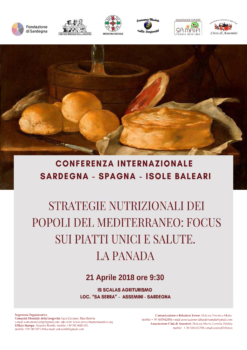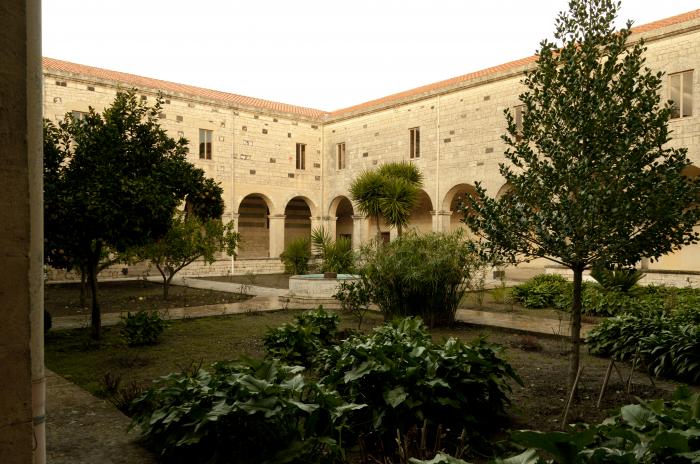
Written by Branka Kurtz
So, we are born and we die in ignorance. We live in an even greater. And the problem isn’t that we don’t know. The problem is that, unlike Socrates, we know that – we don’t know!
Prepared to resist this senseless ignorance and with it, “full of ourselves” (misguided with idealized self-image), pumped up with the collective passion of frenzy and and sick rhetoric of ideologised daily – political discourse, most of us, our own illusions and ably disclosed fraud of official interpreter of history we uncritically accepting as the final truth. And, behold, that fabricated truth, becomes source from which historically emerge all human misery and troubles. All of our real-life adversity. Large and small. Almost all the people deep in themselves understand what are forgiveness and revenge. The goal of revenge is to cause the same or greater pain and suffer than it was the original at passing through smaller or bigger injustice, and also means taking justice into the hands of individual or small groups outside the legitimate system of justice, ethical and moral behavior.
Old Testament philosophy “eye for an eye” actually trying to alleviate such phenomens, and St. Paul goes further and says that only God has the moral right to revenge. The goal of forgiveness is lifelong human challenge in an effective effort and adaptive to cope with injuries, intentionally or unintentionally undergoing from the others. Whoever succeeds in that stops being like the cartoon Callimero and feels no bitterness, because it is elevated to a higher developmental level. The idea of forgiveness and the forgiveness involves the existence of victim and the one who has inflicted observed injuries or injustice. There is a number of the possible outcomes out of this relationship. For example, those who have committed crimes can aks for a conditional pardon from the victim, in the form of an apology, or they can try to redeem on other way, to make amends. However, if an offender enjoys in his wickedness or the torture of victim, that will hardly happen. Religion, offers help even for those, if, after pleading guilty seek forgiveness from God himself. With this, the sinner actually becomes a victim of his wrongdoing. Unfortunately, there are so many horrendous crimes in which forgivness isn’t really possible and they don’t deserve any kind of apology, but in most cases yet is possible at least understanding of setting of commission, which of course doesn’t justify them. From the viewpoint of victim, it is possible to give or not give forgiveness to those who have inflicted trauma, the ability, capacity for forgiveness. The main sign that intrapsychic forgiveness is achieved is freedom from intrusive thoughts on the topic of inflicted injustice, from fantasy to some form of retaliation, or waiver of the expectations of apologies. So when the thought of insult or trauma, stops being the central theme of a person, although this doesn’t mean that it is forgotten, starts authentic, true forgiveness which always involves understanding the depth and scope of attacks.
Ideally, forgiveness should include continuation of previous relationship, after the victim manifests about that is all finished and forgiven, what can, but doesn’t have to include an achievement of satisfaction. There are other cases of continuing the previous relationship by the type “forgive but not forget”, when victims suppress their anger and doesn’t really solve the problem, which is called pseudo-forgiveness, ‘cause actually masochistic reaction formation or suppression of anger is in favor of adjustment. It is similar to the fast or “too easy” forgiveness which is encountered in those structures which personality doesn’t allow the expression of aggression, so they can minimize or dismiss their anger, “offer the other cheek” or try to forget what happened. Such people have difficulty in tolerating anger in general and their guilt or revenge can be expressed through some of the symptoms, eg. eating disorders or any destructive behavior, all way to suicide attempts.
The second type is becoming dependent on aggressiveness, preoccupied with revenge, which is significant obstacle to psychological development, inhibits creativity, work and the ability to enjoy, open to new experiences and challenges. First of all, it generates a lack of confidence to others based on the defense of shame and fear of re-traumatizing. Sadistic pleasure in revenge may indicate the need for control and defense against a sense of nothingness. So the question of forgiveness, becomes a question of ability to cope with the emotion of anger, associated with the traumatic experience, real or imaginary injuries that are actually happening since early childhood. Applied them intentionally or unintentionally different “significant others”, above all, parents. If there is no competence to resolve conflicts or anger caused by frustrations, especially in limiting free will and choice, consequences are evident throughout life. Individuals differ in their capacity to test reality, pulses control, tolerance of feeling terror, to create relationships, sensitivity, offensiveness, modeling of their hostile reaction commensurate to the offense overcoming an exclusive black-white view of events ie. the possibility of integration of good and bad aspects of the beloved (lost) object. Forgiveness is related precisely to these relational capabilities, which include the capacity for recovery, concerns, grief and metallization.
This important capability is reflected in sympathy with the emotional reactions of the others and understanding the motives and needs that influence the behavior. It is particularly striking when we talk about teachers, caregivers, therapists, doctors, who can understand, but also modulate the negative behavior of their service users. This capability allows the development of ideas about what is going on in the minds of other people and predict their behavior, and not just react to that behavior, but also their concept of sense, intentions and beliefs. Mentalization makes us social beings, capable of intimacy and relationships living and working in different communities, because it puts harmful behavior in the wider context. It develops in an environment of secure attachment to parents, allowing adequate tripping developmental trauma. If this doesn’t happen, we encounter an adult people, which oppose the abandonment of long-term resentment as against their parents and educators, in which they ruthlessly persist and when it comes to significant changes and improvements in relationships in general. Psychotherapy can lead to opportunities for change here and now, but in retrospect, and prerequisite is not to expect perfection either by itself or by others and simultaneously accept both good and bad qualities of the whole person. It means to forgive yourself not letting expectations too high and overcome jealousy towards someone else’s abilities, which leads to feelings of superiority and finally – overcoming powerlessness and victimhood. So with forgiving powerless person becomes powerful. When you achieve an understanding of intrapsychic, forgiveness doesn’t require another person apology or compensation and no request for continuation of any connection with those who caused the damage, so no need for revenge. Forgiveness then means and detachment, “release” of a permanent maintenance and keeping ambivalent relationship with the object of forgiveness. Forgiveness is possible for people that are in the early developmental stages raised with sense of security and attachment to parents, who have successfully overcome the paranoid and depressive positions, fear of abandonment and are capable to mourn the loss, whether real or psychological. Thus, grief and forgiveness go hand in hand and mutually reinforce each other. In the impossibility of mourning person feels anger over the loss, anger is alive because it defends the positive feelings toward the hated object. The impossibility of forgiveness and the desire for revenge prevent grief and prevent deprivation of relationships that were highly valued prior to the traumatic situation.
Similarly, the hostility among the earlier close national groups or permanent distrust and stubborn complaints and aggression for example in marriage and divorce, after the initial idealization to avoid complete loss of love object. In short, when an individual can grieve, and can be forgiven, no desire for revenge. Loss doesn’t have to get over, but we can learn to live with it, which requires a secure place within yourself, that protects our borders, mind, body and emotions.






















































